South Africa
South Africa's leftwing opposition launched strikes and rallies under heavy security on Monday (Mar. 20) in a bid to force out President Cyril Ramaphosa over his handling of the country's economy and crippling energy crisis.
Several thousand protesters gathered at a square in the capital Pretoria preparing to march to the Union Buildings, the seat of government, where police and troops were on patrol.
Thousands of others gathered in other parts of the country, according to footage on local media.
Eighty-seven protestors were arrested for violence-related offences overnight, according to the police.
The Economic Freedom Fighters (EFF), the country's third-largest party, has called for a "national shutdown" of walkouts and protests, sparking fears of a repeat of unrest that turned deadly two years ago.
In Pretoria’s Church Square, a huge poster made from white fabric, with "Ramaphosa must go" written in red paint, was tied to a fence.
"Clearly this government is failing," said Carl Niehaus, a former official of the ruling ANC who joined the mainly EFF supporters for the rally.
"The damage that the Ramaphosa government is causing is so terrible that we cannot tolerate it any longer. They must go now," he told AFP.
Trade unionist Trevor Shaku was among the protesters calling on the ANC government to go.
"The decision to demand the resignation of Ramaphosa must be expanded to include the entire African National Congress in Congress in government because clearly it has mismanaged this country," he said.
High alert
The authorities said they were on high alert to maintain security, with nearly 3,500 troops available to assist police.
"We hope that those that will be marching, as long as they will be doing so peacefully, we have no reason to interfere with them," Police Minister Bheki Cele told reporters in Johannesburg.
He added that private security companies were also helping police.
Most shops across the country protectively pulled their shutters down, and one Pretoria auto dealership had removed all vehicles from its display.
At least 350 people were killed when protests sparked by the jailing of ex-president Jacob Zuma spiralled into riots and looting.
Ramaphosa ordered law enforcement agencies to prevent any repeat of the unrest and warned against coercion.
People have the freedom to demonstrate, but "no-one should be forced, threatened or intimidated into joining that protest," Ramaphosa said on Monday in his weekly newsletter.
The EFF has told protesters their actions "must be militant and radical" but to behave peacefully and watch out for provocateurs. It accuses the authorities of risking excessive force and intimidation by deploying the army.
South Africa's problems
The party is demanding Ramaphosa quit over his handling of the economy, chronic electricity shortages and high unemployment.
The 70-year-old president has hit back, accusing the EFF of instrumentalising South Africa's problems to gain traction ahead of general elections next year.
For the first time since January 2, the country on Sunday -- and most of Monday -- was spared scheduled power cuts, something that the EFF claimed was due to the pressure of the strike call.
In Pretoria, EFF member Gift Boquopane, 42, joined the protest with his wife and children.
He carried a sign reading "Down with loadshedding," a reference to the deeply unpopular outages.
The power shortages have deeply amplified resentment in a country battered by stratospheric unemployment and soaring inflation. In the last three months of 2022, economic growth tumbled below pre-pandemic levels.



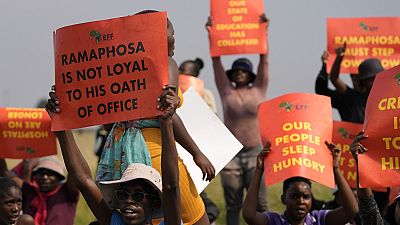

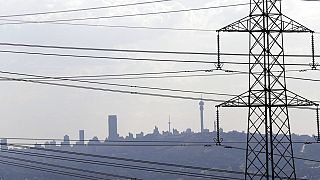
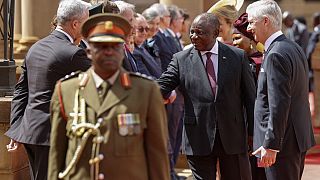
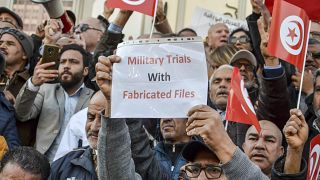
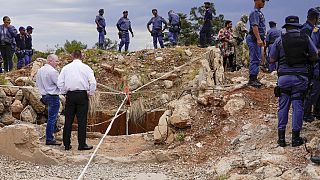
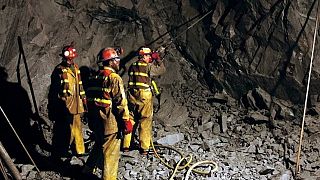
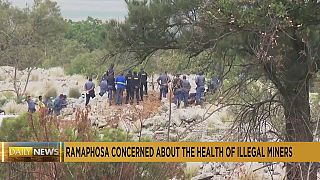



02:18
Highly-anticipated Wicked makes its cinema debut in South Africa
01:14
World leaders gather in Brazil for G20 summit amid global tensions
01:00
Chidimma Adetshina crowned Miss Universe Africa and Oceania
01:56
Niger: Thousands march in Niamey to denounce “destabilization plots”
01:10
South African beauty queen withdraws from Miss Universe pageant
01:38
Police spokesperson calls rescue attempt of trapped miners ‘unsafe’